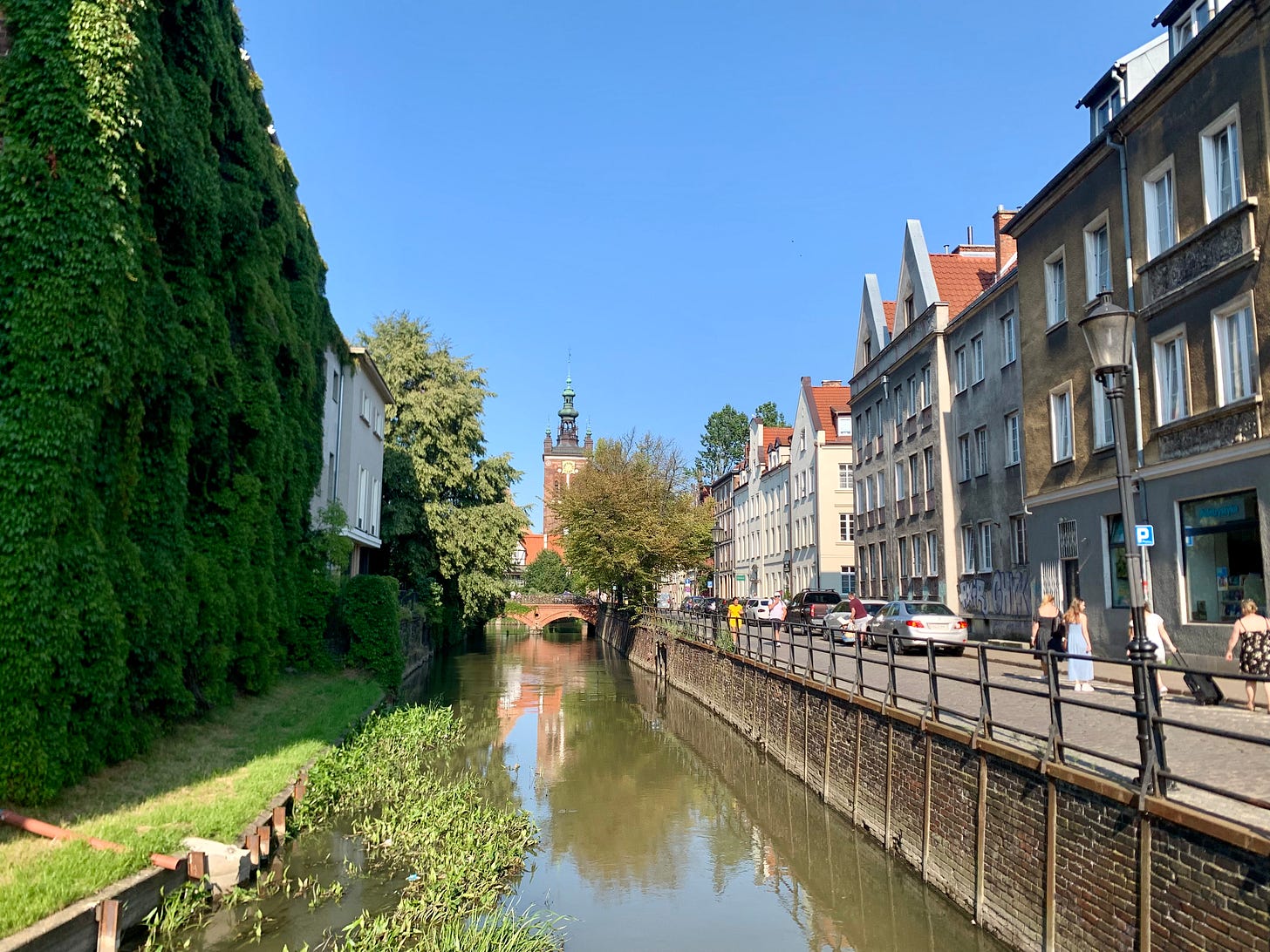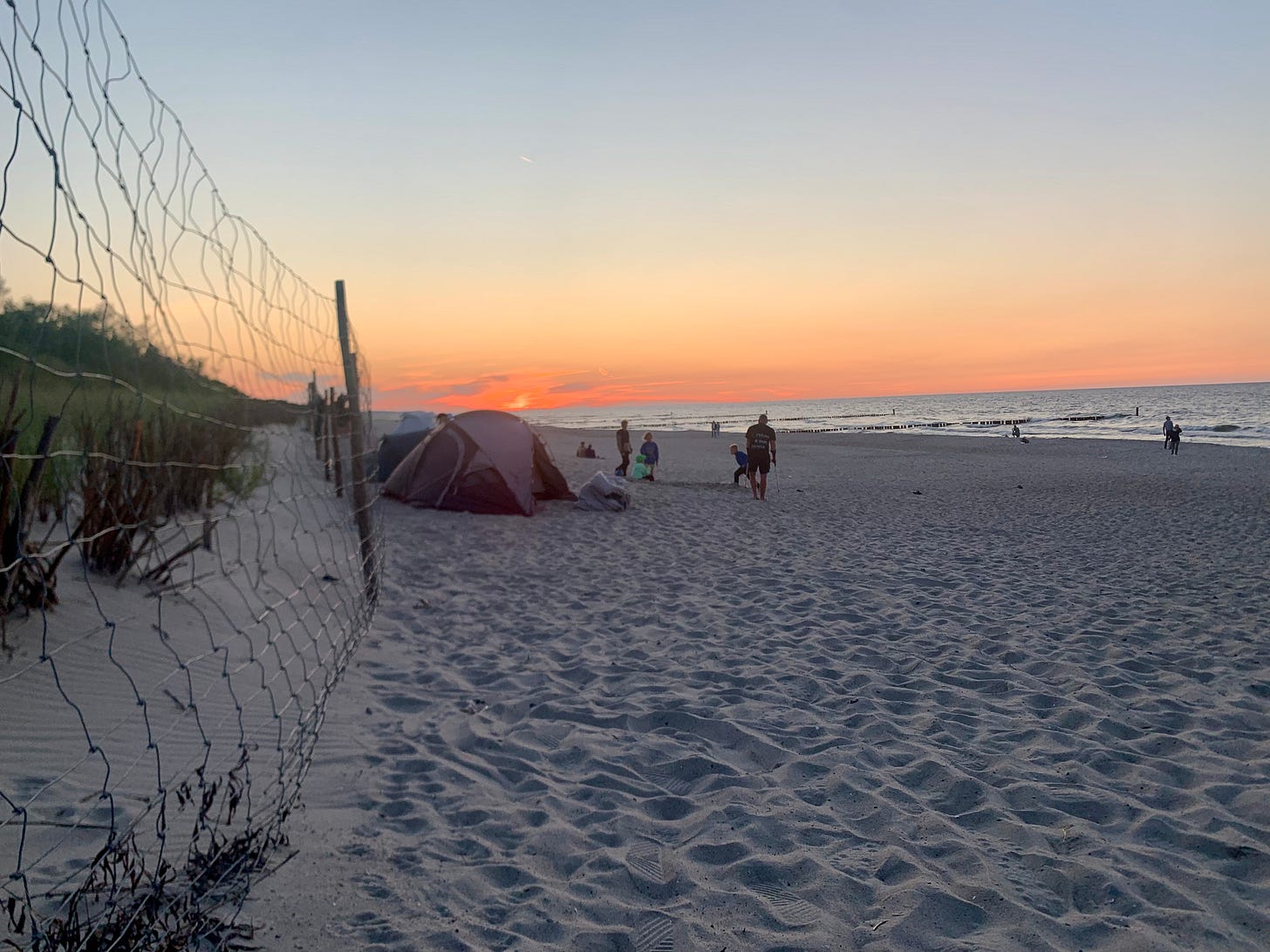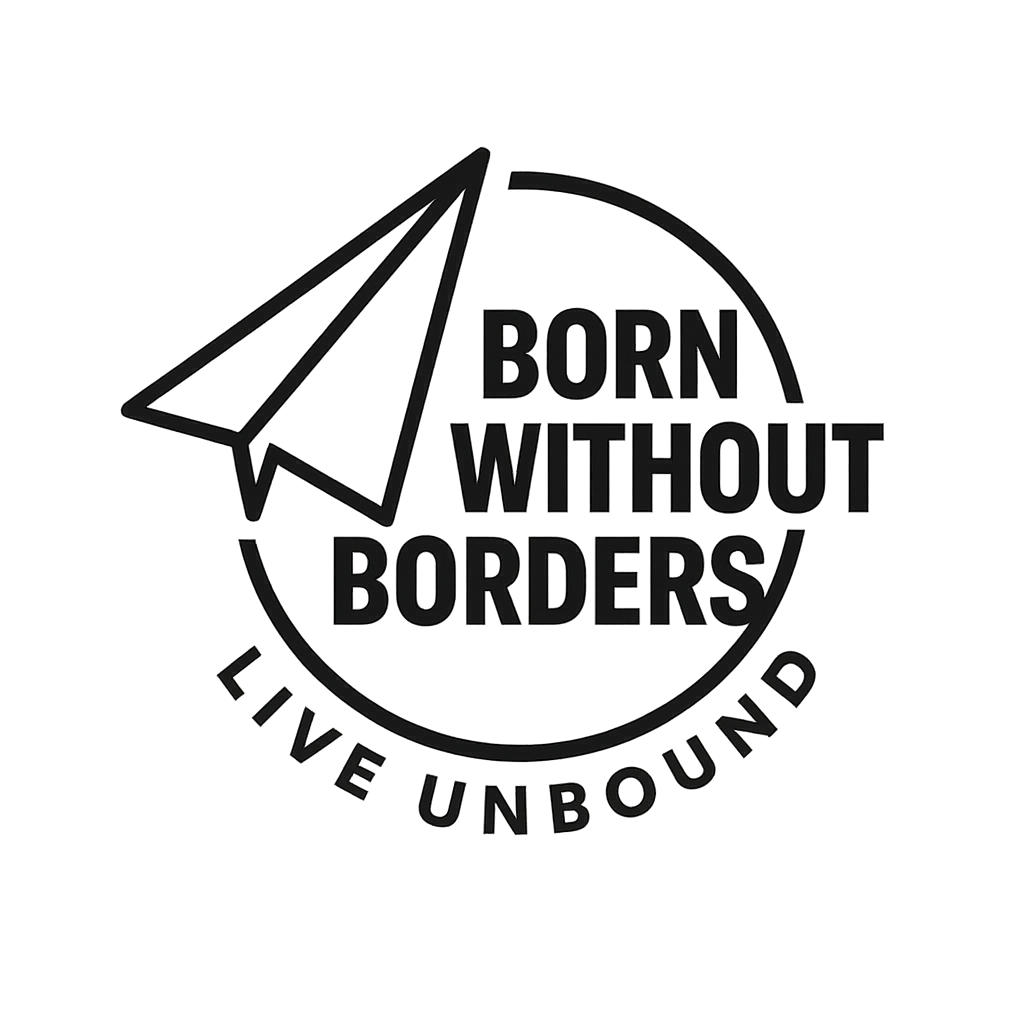Polish Racism & Taxes

Europe is a “Russian” doll. Its endless layers become deeper every time you meet someone new or revisit a place. So, for the past three months, I’ve asked locals the same questions to understand what makes their cities or towns unique.
But what does “their” mean?
To populists in Europe, this often means white people who embody the general customs of the country as far back as they’d like to remember. In times of fear and anxiety, populists thrive because people cling to a false sense of security, forgetting that change is the only constant in life.
Human migration has been the most basic feature of humankind for millions of years. Arguments against it in favour of “strong borders” are thinly veiled racism and ahistorical thinking.
— Nishant Jain
Fortunately, the people I met and interviewed were global citizens. That’s why you got proud yet critical insight from Andrea Baggio in “Turin’s Cuisine, Parks, and Divinity” and uncensored critique from my host (who needs to remain nameless for obvious reasons) in “A Local's Guide to Krakow, Poland.”
Both Andrea and my Polish host were born in their cities. That doesn’t mean they are any more from those cities as people who moved to those cities. In fact, a person who chooses a place can know it even better than those born there and never left because they have the added benefit of looking from the outside in, not just the inside out—that’s strictly the perspective I got from a friend I met in Tricity, Poland.
My friend was born in Belarus, and those aware of the political climate understand why she needs to remain nameless. Using her name would put her friends and family at risk. Just for following someone who is anti-Russian, the police will come to your home and break your legs—and that’s if you’re lucky.
Although my friend was born in Belarus, she has spent 19 years (over half her life) in Poland and has citizenship there. She also lived in Mexico, Spain, and Sri Lanka, giving her a global perspective like many of you in the Born Without Borders community.
What makes Warsaw and Tricity stand apart from the rest of Poland?
Warsaw is the capital, so it has more theatres, concerts, and job opportunities. You’ll find everything in the ten most popular theatres—opera, contemporary dance, ballet, world-renowned musicals—you name it. There are a dozen more theatres for fringe plays.
As far as the ambiance goes, you notice it’s much more cosmopolitan than the rest of Poland. People here are ambitious and chase their dreams. It’s also more liberal than other cities in Poland. Well, Tricity, which includes Gdynia, Sopot, and Gdansk (the city I live in right now), is also pretty liberal. I guess it’s because of the port influence and the tourists they see here.

There’s also more of a chill vacation vibe. You can tell people want to connect to the nature here. It almost has a Southern vibe. In other words, people aren’t on time. In Warsaw, if you’re late, you’re out. Here, delays are normal.
What are your favourite things to do in Warsaw?
I enjoy taking a walk next to the Wisla River. I also love the parks; Szczęśliwicki Park is probably my favourite. You can go canoeing and fishing, and people even go skiing in the winter.
I also feel fortunate to have attended the Warsaw University of Technology. Even after graduating, I catch myself returning to enjoy the main building, which looks straight out of a Harry Potter movie.
And in Tricity, I love walking next to the sea, going to the old town in Gdnask, and camping out in Hel.

What are your favourite meals or restaurants from Warsaw?
I love bar mleczny—milk bars. They became popular during the Communist era as a way to provide affordable meals to the public. They initially focused on dairy-based dishes, so the name "milk bar” comes from that.
You’ll find pierogi, naleśniki (crepes), bigos (hunter's stew), and soups like barszcz (beet soup) or żurek, the famous sour rye soup here.
If you wanna go, some of the most famous are Bar Prasowy, Bar Mleczny Familijny, and Bar Mleczny Bambino.
I don’t have any recommendations here, though. I haven’t explored the restaurants in Tricity yet.
What's the greatest challenge of living in Warsaw?
Polska dla polakow—Poland for Polish.
Although I spend my time in these relatively liberal cities, I always hear it. I speak Polish fluently, but when men find out I’m from Belarus, they tell me Polska dla polakow.
And really, only men say it. I noticed my big Belarusian male friends don’t hear it as much. So, I assume it’s not a male thing to be more racist, but that these cowards don’t feel as scared saying it to a woman than to a man their size.
Also, it’s usually from uneducated people. Blue-collar taxi drivers, and so on. They’re mad because they believe I’m taking their jobs. But I’m a computer engineer. Actually, it’s not just blue-collar people. I even heard it from my professor—I was eighteen then, so it hit me pretty hard.
How much money does one need to live comfortably? And how did you end up paying only 8.5% income tax?
In Warsaw, if you live alone outside the centre, you’ll likely spend around 3500 zlote, or over 800 Euro, on rent. In the centre, a one-bedroom would easily be over 1000 Euro a month. Luckily, public transit is cheap—4.40 zlote. That’s around a euro.
As for the Tricity area, Sopot is the most expensive, especially in the summer because it’s touristy. In Gdnask, you can find decent places for 3000 Zlote.
So, it’s not as cheap as Spain, but the taxes are on a whole other level. I use the Ryczalt system. When you use this system, you only pay 8.5 or 12% income tax, depending on the activity. You can find the list of activities that qualify online.
With this, you have to pay health insurance every month. It’s called Zus. It depends on how much you earn, but usually, it’s 1’500 zlote, which is still less than those crazy autonomo fees you have in Spain. But the healthcare isn’t great here. Still, with the money you save in taxes, spending an extra 50 euros a month or so on private health care is worth it.
The other option is a 19% flat rate. No matter how much you make, you only pay 19% tax. If you make really good money, the Ryczalt system is better, but it depends on the activity. You have to look into it on a case-to-case basis.
When you compare Poland to some tax havens, Poland is still better because the living costs are relatively cheap. And if you compare Poland to Western Europe, you know how high the taxes are for entrepreneurs and independent contractors. However, for regular employees, Polish taxes are comparable to those in Western Europe.
What are your favourite pieces of history?
I love that when the old town in Warsaw was destroyed, the people paid for bricks to rebuild the king’s castle, and now people’s names are in the castle.
Do you any parts of you feel like a person from Poland?
When I’m frustrated and angry, one of the first words that comes from my mouth is “Kurwa.” It means whore, but it’s more like saying “fuck!” Don’t say it, Nolan.
You mentioned that you also feel “inescapably foreign.” Can you explain why?
For the same reason I can’t mention my name in the article. If I go back home, I risk being imprisoned or beaten by the police. I try not to follow people who could risk my family, but you never know.
Most of all, I miss my family, and as much as I’d like them to come to Poland, I know that Belarus is their home. Their language might be suppressed, but they still speak it at home. Their people might be brutalized, but it’s their people. Most of all, my parents wouldn’t leave my grandmother behind. She’s 90—in other words, she’s not moving anywhere.
And, like you, I don’t feel like I belong to one place. You said you feel like a privileged asshole, saying you’re inescapably foreign compared to my situation. But why? I can feel you trying to understand me. And I try to understand you. What more could we ask for? I sure wish more Polish people would.
What would change about the city or culture if you were mayor, and/or what do you hope will never change?
I would love for people to be more open-minded, less conservative, and less judgmental. Also, Polish people love to complain. If you ask a Polish person, “How are you?” The first thing they will do is complain. In Belarus, we’re not like Americans saying, “I’m fine” with a giant fake smile, but we don’t complain as much as the Poles do either.
Do you feel like part of Europe?
No, I don’t because it’s not the EU, and we are so separated. Even without the war between Russia and Ukraine, it wouldn’t feel like Europe. It’s 30 years behind.
The places close to Poland feel more European and are a bit more pro-Europe, but those close to Russia have a different mindset and culture. They’re oppressed and brainwashed.
I’d also like to mention that Belarus is not like Russia or Poland. We are our own country and culture with our own language. The nature is stunning, and the people are kind and welcoming, and I hope that one day, we can show that to more people.
If you believe in research and writing that break down borders, foster cross-cultural understanding, and inspire people to live unbound, consider becoming a paid subscriber to Born Without Borders.
All my work is published on Ghost, a decentralized, non-profit, and carbon-neutral platform—free from VC funding and the grip of technofeudal lords.
I don’t use algorithms to hijack your attention.
My work can only exist if you share and support it.
- Become a Paid Member: Get access to all exclusive content and potentially included access to certain courses/workshops and directly support this work for just $5/ month or $50 / year.
- Become a Founding Member: For those who want to make sure I stay off the platforms causing mental illness, polarization, and a technofeudal shit show. Your deeper support makes all the difference for $30/ month or $300 / year.
Ready to Live Unbound?
Escape the borders your mind has created. Free yourself from language constraints, social media algorithms, and cognitive biases.
Whether you're looking to refine your authentic voice across cultures, master the art of travel storytelling, navigate cultural complexities, or unlock your creative writing potential, there's a path for you.
Need Specialized Coaching?
- Unlock Your Authentic Voice (Across Cultures & Systems): If you're a multilingual professional or "cultural inbetweener" who feels unseen or misread, let's refine your English for nuance, confidence, and true self-expression.
- Fitness That Adapts to Your Life (For Nomads & Neurodivergent Minds): Your body deserves consistency, even if your life isn't. Get custom, shame-free movement and recovery plans that fit your travel schedule, limited equipment, and unique brain type.
- No-BS Cultural Navigation & Relocation (Spain/Canada Focus): Considering a move? Let's get real about the challenges, the hidden costs, and the emotional prep needed to thrive, not just survive.
Affiliate Links for Global Citizens
- Home Exchange: Trade homes, not hotel bills. Live like a local anywhere in the world.
- Wise: Send money across borders without losing your mind (or half your paycheck in fees).
- Preply: Make a living teaching people worldwide.
- Flatio: A more ethical version of Airbnb.

Member discussion